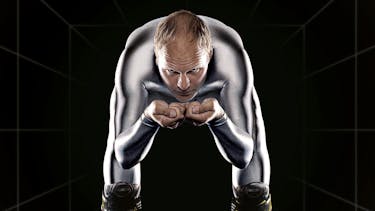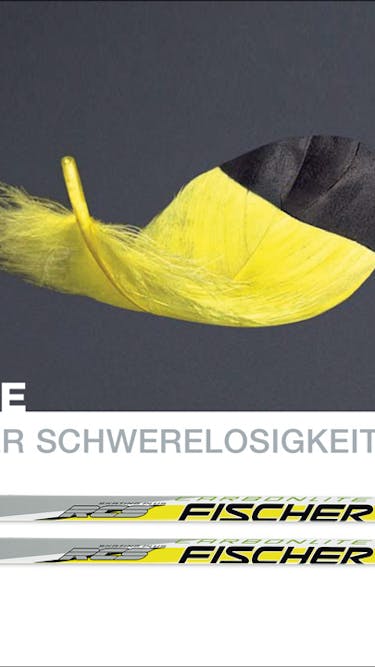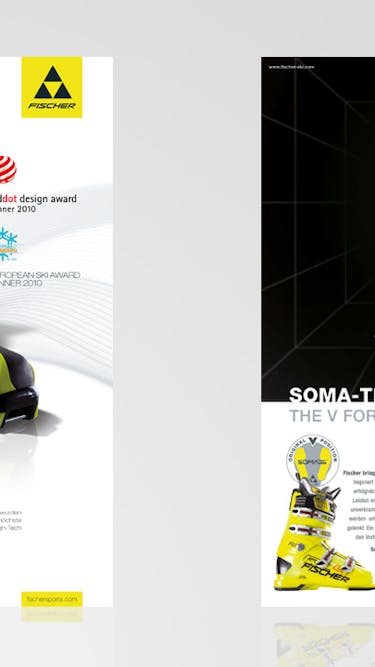After the crisis of 2007 and 2008 Fischer sells its shareholdings in FACC and FCT (which had involved a lot of expenditure), closes the Business Unit Tennis down and concentrates on the core business of ski hardware, i.e. skis, boots, bindings and poles. This clear focus, plus leaner structures and distribution subsidiaries in the USA and France, gets Fischer back on the path to success.
Soon after the crisis in the ski industry in the early 1990s Fischer reacts by selling off unprofitable parts of the group: Kästle and Dynafit had been sold then and tennis production in Hollabrunn shut down. Sport-AG plus Löffler had been incorporated into Fischer GmbH, and company shares sold to a distributor in Japan. In 2002 Fischer buys these 31 per cent back from the Japanese and since then the company has been entirely family-owned.
In June 2007 the group is restructured again. Fischer GmbH is renamed Fischer Beteiligungsverwaltungs GmbH, owned by the Josef Fischer Privatstiftung and the Sturmberger-Fischer Privatstiftung (two foundations). Fischer Sports GmbH, Fischer Composite Technology GmbH (FCT) and Löffler GmbH become subsidiaries of Beteiligungsverwaltungs GmbH. In addition an Industriebeteiligungs GmbH is set up, holding 47.5 per cent of the FACC AG shares.
The crisis in 2007 and 2008 has several causes. Two winters with little snow in succession, the loss of an important OEM customer, an aggressive, but too costly reorganisation project, and a new line of business that likewise requires a lot of money, in the shape of FCT. At the same time FACC also urgently needs new capital, so as to keep growing: capital that Fischer no longer can or wants to raise on this scale. Accordingly the entire share capital of FACC AG is sold in June 2008. In March 2009 FCT is sold to Benteler SGL Composite Technology GmbH. The tennis unit is shut down in July 2009. Fischer Sports GmbH and Löffler GmbH remain within Fischer Beteiligungsverwaltungs GmbH.
With this focus on its core business Fischer manages the turnaround. The core competences in the downhill and cross-country ski sector are pushed. Fischer acquires know-how in developing and manufacturing boots. You can do an apprenticeship to become a qualified shoemaker, but not a ski bootmaker, who would need to know a great deal about plastics. So Fischer trains ski bootmakers in-house, thus building up the relevant competence and know-how within the company.
To secure additional market shares, Fischer sets up distribution subsidiaries in France (in 2007) and in the USA (in 2009). As a result the market in both countries can be worked more effectively. Success is not long in appearing: Fischer expands in France, and does well in the USA, too.
Within ten years the volume of Alpine skis sold has diminished by nearly a third – from about 4.5 million pairs in the 2002/03 season to about 3.2 million today. Fischer's sales are correspondingly down, and this also applies to the OEM products, i.e. skis which Fischer manufactures for other ski firms. One important reason for the ski market shrinking is that ski hire is steadily spreading. However, the decline in sales of skis is made good by increases in boot sales – here Fischer expanded its market share considerably in recent years. The cross-country sector is particularly dependent on snow conditions. But Fischer is the unchallenged world market leader in cross-country skis; and in the case of cross-country ski boots Fischer is close to taking first place, and has every intention of doing so in the near future.
Top-class sport remains extremely important for Fischer; after all, it has made the brand into a household word and does a great deal to boost demand for Fischer products all over the world. However, there have been changes in top-class sport in recent years. In the case of Alpine, in particular, classical racing is no longer the only issue. Professional top-class sport has also developed in freeskiing and touring. Today Fischer takes full account of this growing segmentation in their commitment to top-class sport.
On the company's 100th anniversary Fischer takes the stage as a modern enterprise, manufacturing innovative high-tech products in the core area of skiing. Alongside the headquarters in Ried im Innkreis Fischer has a second production facility in Mukachevo in Ukraine, where hockey sticks are also manufactured. Other fully owned subsidiaries of Fischer Sports GmbH: Fischer Footwear S.r.l. in Montebelluna in Italy, and the distribution subsidiaries Fischer Löffler Deutschland GmbH, Fischer Skis US LLC in the USA and Fischer France SARL in France.
Löffler GmbH, which is also based in Ried im Innkreis, is fully incorporated in Fischer Beteiligungsverwaltungs GmbH, which is owned by Josef Fischer Privatstiftung (80.7%) and Sturmberger-Fischer Privatstiftung (19.3%), making Fischer the last Austrian ski manufacturer still entirely family-owned today.







